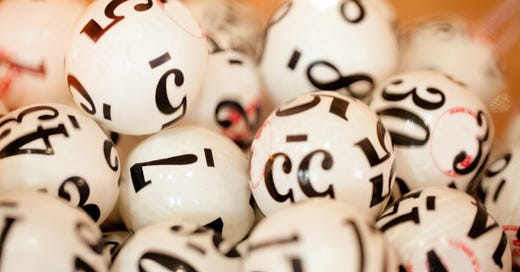Every two weeks or so I am publishing an essay from an emerging writer. This week’s essay is The Lotto Line by Christola Phoenix and it was edited by Meg Pillow. Christola is born, bred, roasted and toasted in Harlem and she is a lifetime resident of the Harlem community. She is a baby boomer and a retired Registered Nurse. Christola began her writing j…
© 2025 Roxane Gay
Substack is the home for great culture




